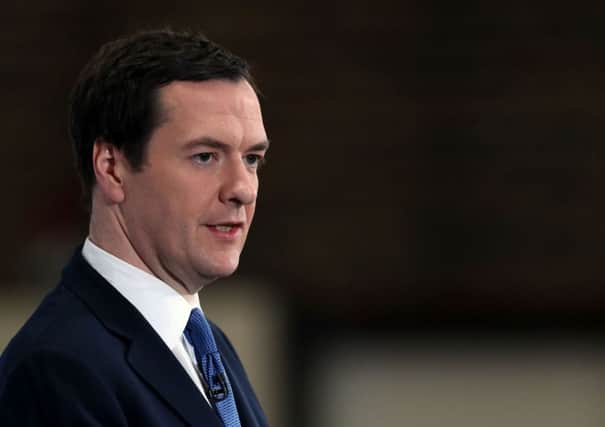HBOS-Lloyds bank merger a mistake, says Osborne


The criticism came in an aside during the committee’s annual post-budget hearing with the Chancellor when Mr Osborne came under pressure from Labour John Mann over whether he had interfered to stop the sale of Lloyds branches to Coop before it ran into difficulties.
Mr Osborne insisted that he had not put any pressure on either bank or the regulators and said that “it is an example of the regulators working properly”.
Advertisement
Hide AdAdvertisement
Hide AdHowever, in a moment of frustration he said that he had been forced “to spend a disproportionate amount of time” fixing the problems from “inappropriate” takeovers allowed by the previous Labour government including Lloyds takeover of HBOS and RBS’s takeover of the Dutch bank ABN Amro which led to its collapse.
Unlike RBS, the Lloyds takeover of HBOS was pushed through by foormer Labour Chancellor Alistair Darling against a strong campaign in Scotland as a means of stopping HBOS from collapsing, allowing competition rules to be ignored for it to go ahead. In the end the government had to bail out the newly merged Lloyds bank and take part ownership of it.
During his evidence Mr Osborne also said there will be no “quick fix” to the problem of Britons’ reluctance to save and said the government still needs to be “vigilant” over another housing bubble.
The Chancellor used last month’s Budget to announce a range of measures to encourage saving, including abolishing the 10p tax rate on savings, scrapping the requirement for pensioners to buy annuities and introducing new-style flexible ISAs with a £15,000 tax-free limit.
But the Office for Budget Responsibility has forecast a decline in household savings ratios - the proportion of disposable income that is saved - from 5.4 per cent to 3.3 per cent by 2017.
Appearing before the Commons Treasury Committee, Mr Osborne compared the task of fostering saving to “turning round a supertanker”.